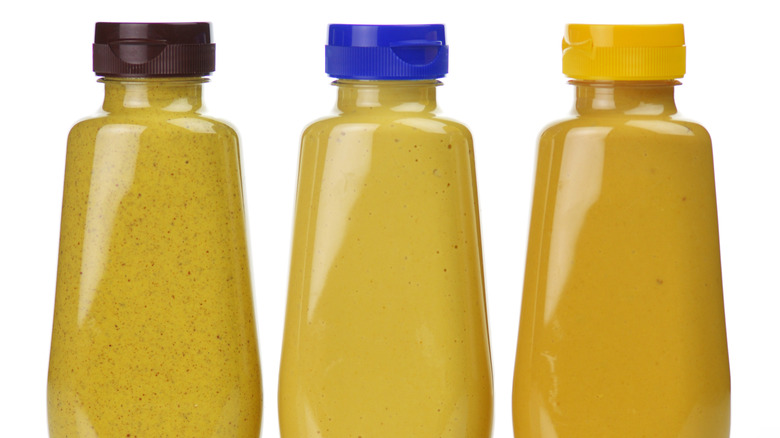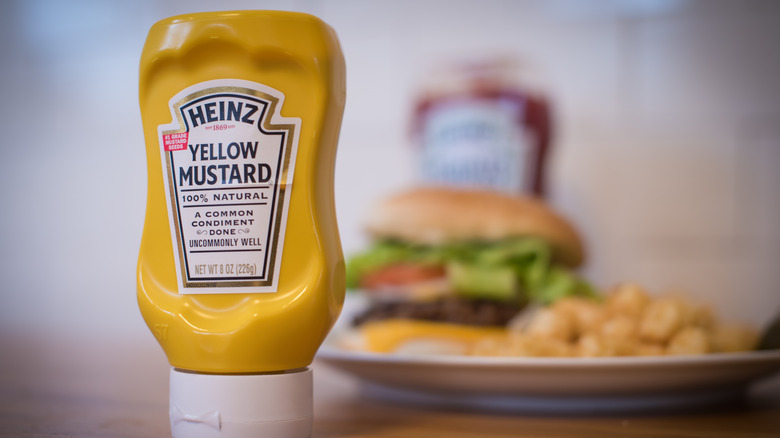How To Tell Mustard Has Gone Bad
So your fridge is deserted ... like only a half-gone chunk of parm, a lone nob of butter, and a bottle of mustard. You reach for the crusty-tipped yellow container thinking to yourself, "When did I buy this?" You're probably reading this because you started second-guessing yourself if mustard even goes bad and you started Googling.
You turn the bottle to find the best-by or use-by date, which A. it doesn't have because the USDA doesn't require them (except for infant formula), or B. is from last year. But not to fret if you're mustard is a bit old. The USDA states that even if it is past the date, "a product should still be safe and wholesome if handled properly until the time spoilage is evident."
There are foods that never go bad, like honey, dried beans, and rice, to name a few. However, despite what you may think, mustard does indeed go bad.
Use your senses to know if mustard has gone bad
There is no one answer for when mustard is truly "bad," for one, because there are many different types of mustard. "Mustards with a higher amount of acid, such as Dijon mustard, will last longer than milder varieties, like honey mustard," according to Does It Go Bad.
This checks out because vinegar is used in preservation and inhibits the growth of microorganisms, and is one of the reasons why mustard, which often contains vinegar, lasts longer than the best-by or use-by date. But it won't retain its spice and texture forever.
The best way to determine if your mustard, or any food, is bad is by inspecting the color, texture, and odor for off qualities — if the color has turned brown or green, if the mustard is chunky or dry, or if it smells rotten. And of course, if there is any mold growth or fuzzies on the surface of your mustard, you should discard it.
But there is one common visual sign of older mustard that doesn't mean it's spoiled. Older mustard tends to separate, so if your mustard has a pool of liquid at the top, that is normal and doesn't necessarily mean your mustard is spoiled.
Next time you reach for a questionable bottle of mustard, use these tools to help determine if it is safe to eat.

